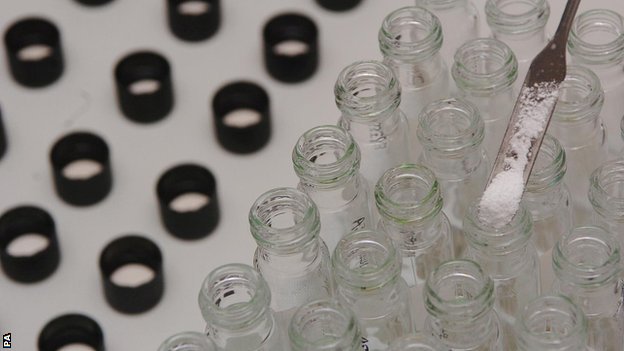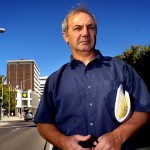
Athletics’ governing body suppressed a study which showed as many as a third of the world’s top athletes admitted violating anti-doping rules, according to the Sunday Times.
The University of Tubingen in Germany is reported to have said the International Association of Athletics Federations (IAAF) blocked publication.
Hundreds of athletes apparently told researchers in 2011 they had cheated.
The IAAF said discussions were ongoing about the report’s publication.
In a statement to the newspaper, the university said: “The study is an independently initiated scientific research project and was not commissioned by the IAAF.
“The IAAF’s delaying publication for so long without good reason is a serious encroachment on the freedom of publication.”
The governing body responded: “Discussions are ongoing with the research team and Wada [the World Anti-Doping Agency – the other partner in the project] regarding publication of the study.”
Four years ago, a team of academic researchers interviewed hundreds of athletes at the World Championships in Daegu, South Korea.
The Sunday Times reports the study concluded that 29%-34% of the 1,800 competitors at the championships had violated anti-doping rules in the previous 12 months.
It says that a month after collecting the information, the researchers were told to sign a confidentiality agreement to prevent them speaking out about the admissions.
A leaked copy of the full study has been seen by The Sunday Times and the German broadcaster ARD/WDR.
“These findings demonstrate that doping is remarkably widespread among elite athletes, and remains largely unchecked despite current biological testing programs,” it concludes.
The findings are similar to the newspaper’s revelations a fortnight ago after it obtained access to the results of 12,000 blood tests from 5,000 athletes.
Two leading anti-doping experts found that, between 2001 and 2012, a third of medals, including 55 gold medals were won in endurance events in the Olympics and World Championships by athletes who have recorded suspicious tests.
The IAAF said their findings contained a number of seriously inaccurate assertions.
The German university’s study was reportedly financed with £50,000 from Wada to find out the extent of the use of performance enhancing drugs and methods in athletics. It was put together by 10 academics, including two from British universities.
Although the IAAF played no role in the study, it had the power to veto its publication by Wada in return for allowing access to the competitors at Daegu.
Some of the study’s headline figures did appear in The New York Times two years ago but the IAAF has prevented publication of the study, according to the Sunday Times.
Lead author, Dr Rolf Ulrich from the University of Tubingen, told The Sunday Times he and his fellow experts had been barred from discussing their work.
Asked why the study had never been published, he replied: “It’s because the IAAF is blocking it. I think they are stakeholders with Wada and they just blocked the whole thing.”






